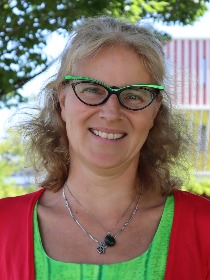prof. dr. T. (Tialda) Haartsen

Already since my PhD research into changes in land use and landownership and how these relate to rural representations (2002), I am interested in what rural areas mean to people. Central theme in my research is how rural place meanings and senses of belonging influence the spatial behaviour of individuals and families, and how they explain reactions to rural place change. In my work, I use the concepts of rural representations, rural identities, place attachment, elective and selective belonging, and nostalgia to understand the geographical and social consequences of rural change in the context of depopulation. The core of my work concentrates around two research themes.
First, I have done several projects on the motives and everyday life experiences of newcomers, return migrants, stayers and leavers in rural areas. I am especially interested in the heterogeneous character of migration, and how this relates to differences in attachment to, and rootedness in, the countryside. Looking at migration from a non-linear and non-migration perspective has demonstrated the importance of social ties to family and friends in (non)migration decisions and has drawn attention to the neglected perspective of stayers in rural migration research (see Special Issue Rural Stayers in the Spotlight 2018, https://onlinelibrary.wiley.com/doi/full/10.1002/psp.2124). I am also interested in if, where, how and why migration flows contribute to the uneven development and (un)attractiveness of regions, and to inequalities between social groups (e.g. as Principal Investigator of the Work Package Migration, Territorial Inequalities and Spatial Justice in the H2020 project IMAJINE, http://imajine-project.eu/).
Second, my research focuses on rural transformations and issues of quality of life and liveability. Declining numbers of facilities and services are thought to have negative impact on the liveability of rural areas, but there hardly is any empirical evidence for this. I claim that it is not the disappearance of the facilities itself, but the emotions of loss and change that cause the perceived negative impact on liveability. In order to keep rural areas liveable, accessible facilities and service are needed. Innovative infrastructure and creative combinations of mobile services can add to that. In the past years, I did several consultancy projects on developing scenarios for clustering facilities in North-East and North-West Fryslân. At the moment, we are developing a serious game on how to make bottom-up and locally supported choices in reducing facilities. My research also deals with the roles that local inhabitants play in actively creating facilities themselves to overcome the disadvantages of the rural setting, such as citizen initiatives and rural hangouts for youth.
My research has a high policy relevance and receives a lot of media attention. Because of my expertise on facilities and services, I was asked by the Ministry of Internal Affairs to be a member of the 2014 “Team Midterm Review”, to evaluate the national policy on population decline. I presented the advice of the Team Midterm Review in a Round Table meeting at the House of Representatives of the Dutch National Government in The Hague. I think it is important to collaborate with national and regional social research institutes, in order to optimise valorisation of research results and to make efficient use of existing data sources. At a regular basis, I am invited to give presentations for local politicians, councillors and aldermen.
| Last modified: | 25 June 2022 4.18 p.m. |
